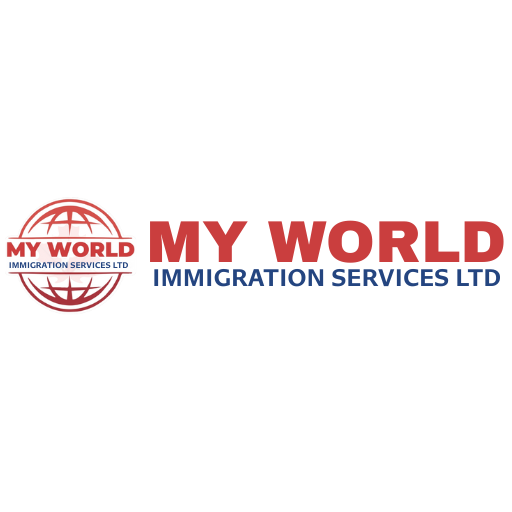
September 25, 2025
Spouse and Common-Law Partner Work Permit Eligibility for International Students in Canada (2024 Updates)
Canada continues to be a top choice for international students, offering world-class education, cultural diversity, and opportunities for career growth. But for many students, the journey is not taken alone. Thousands bring their spouses or common-law partners with them, raising an important question:
👉 Can your spouse or partner work in Canada while you study?
With recent changes announced by Immigration, Refugees and Citizenship Canada (IRCC), the rules for the Spousal Open Work Permit (SOWP) have changed significantly. At MyWorld Immigration, we help international students and their families understand these new rules and secure the right permits to make the most of their time in Canada.
What is a Spousal Open Work Permit (SOWP) in Canada?
A Spousal Open Work Permit (SOWP) allows the spouse or common-law partner of an international student to work for any employer in Canada without needing a job offer. This permit not only provides financial support but also helps spouses gain valuable Canadian work experience, which can later support permanent residency applications.
2024 Changes to Spousal Open Work Permit Eligibility
On January 22, 2024, the Government of Canada introduced new restrictions for international student spouses:
- No longer eligible: Spouses of international students in most undergraduate and college programs.
- Still eligible: Spouses and common-law partners of students enrolled in:
- Master’s programs
- Doctoral (PhD) programs
- Certain professional undergraduate degrees
As of March 19, 2024, only these categories of students’ partners can apply for a SOWP.
Exceptions: Professional Undergraduate Programs
If you are studying at the undergraduate level, your spouse may still qualify for an open work permit if you are enrolled in one of the following professional degree programs:
- Doctor of Dental Surgery (DDS, DMD)
- Bachelor of Law or Juris Doctor (LLB, JD, BCL)
- Doctor of Medicine (MD)
- Doctor of Optometry (OD)
- Pharmacy (PharmD, BS, BSc, BPharm)
- Doctor of Veterinary Medicine (DVM)
- Bachelor of Science in Nursing (BScN, BSN, BNSc)
- Bachelor of Education (B.Ed.)
- Bachelor of Engineering (B.Eng., BE, BASc)
💡 Tip: If your program is on this list, make sure to highlight it in your spouse’s application to avoid delays or refusals.
Eligibility Criteria for Spouses and Common-Law Partners
To apply for a spouse or common-law partner open work permit in Canada, you must meet the following requirements:
- Relationship Proof
- Spouse: Legally married to the international student.
- Common-law partner: Lived together in a conjugal relationship for at least 12 consecutive months.
- Study Permit Requirements
- The student must hold a valid study permit.
- Must be enrolled full-time at a Designated Learning Institution (DLI).
- For undergraduates, enrollment must be in one of the eligible professional degree programs.
- Application Timing
- The SOWP application can only be submitted after the student has received their study permit.
- Where to Apply
- Applications can be filed from inside Canada (if already present) or outside Canada before arrival.
- Required Documentation
- Proof of relationship (marriage certificate, joint bank accounts, cohabitation proof)
- Proof of the student’s enrollment (Letter of Acceptance, enrollment letter, or transcripts)
How to Apply for a Spousal Open Work Permit in Canada
The application process for an SOWP involves the following steps:
- Gather Documentation – Collect all required proof of relationship and enrollment.
- Submit Application Online – Apply via the official IRCC portal.
- Pay Fees – Include the open work permit fee and biometrics fee (if applicable).
- Wait for Processing – Processing times vary, so plan ahead.
Benefits of a Spousal Open Work Permit
Having a SOWP offers significant advantages for families of international students:
- Work Flexibility: Spouses can work full-time in any industry without an LMIA or job offer.
- Financial Support: Helps offset tuition and living expenses.
- Career Growth: Gain Canadian work experience, a key factor in PR pathways like Express Entry or PNPs.
- Networking Opportunities: Build professional connections in Canada.
- Immigration Advantage: Canadian work experience strengthens future applications for permanent residency.
Why These Changes Matter
The 2024 IRCC updates make it clear: not every student’s spouse is automatically eligible for a work permit in Canada anymore. Choosing the right program of study is now more important than ever, especially if you want your partner to be able to work while you study.
At MyWorld Immigration, we’ve helped hundreds of international students and their families strategically select study programs that align with both education goals and immigration pathways.
How MyWorld Immigration Can Help
At MyWorld Immigration, we guide international students and their spouses through every step of the process:
- Checking if your spouse qualifies for an open work permit (SOWP)
- Reviewing your program eligibility under the new 2024 IRCC rules
- Preparing strong applications with complete documentation
- Advising on long-term immigration strategies, including PR pathways
📲 Get in Touch Today:
WhatsApp: +1-672-399-0000
Website: www.myworldimmigration.com
Email: info@myworldimmigration.com
Instagram: @myworldimmigration
